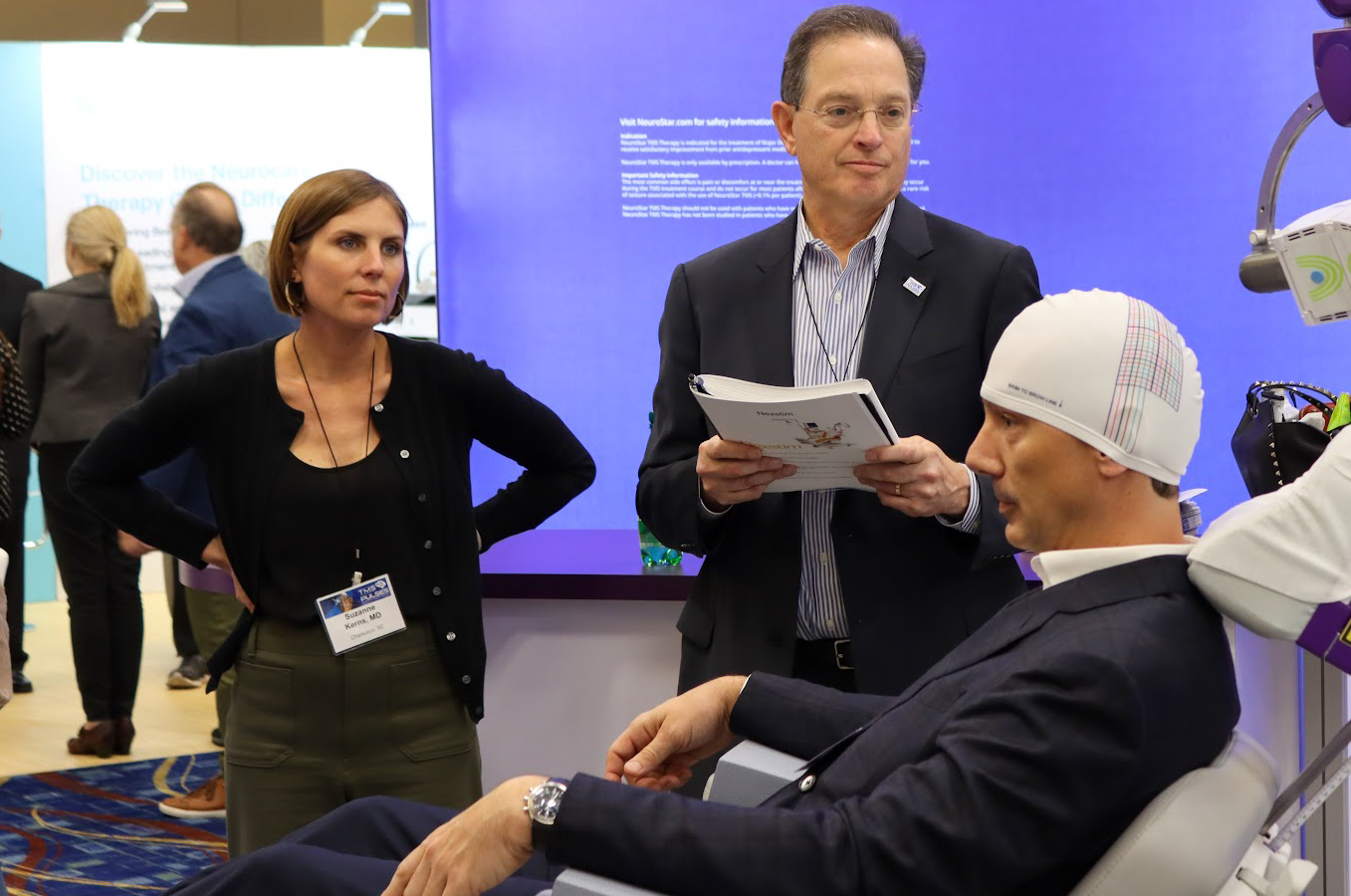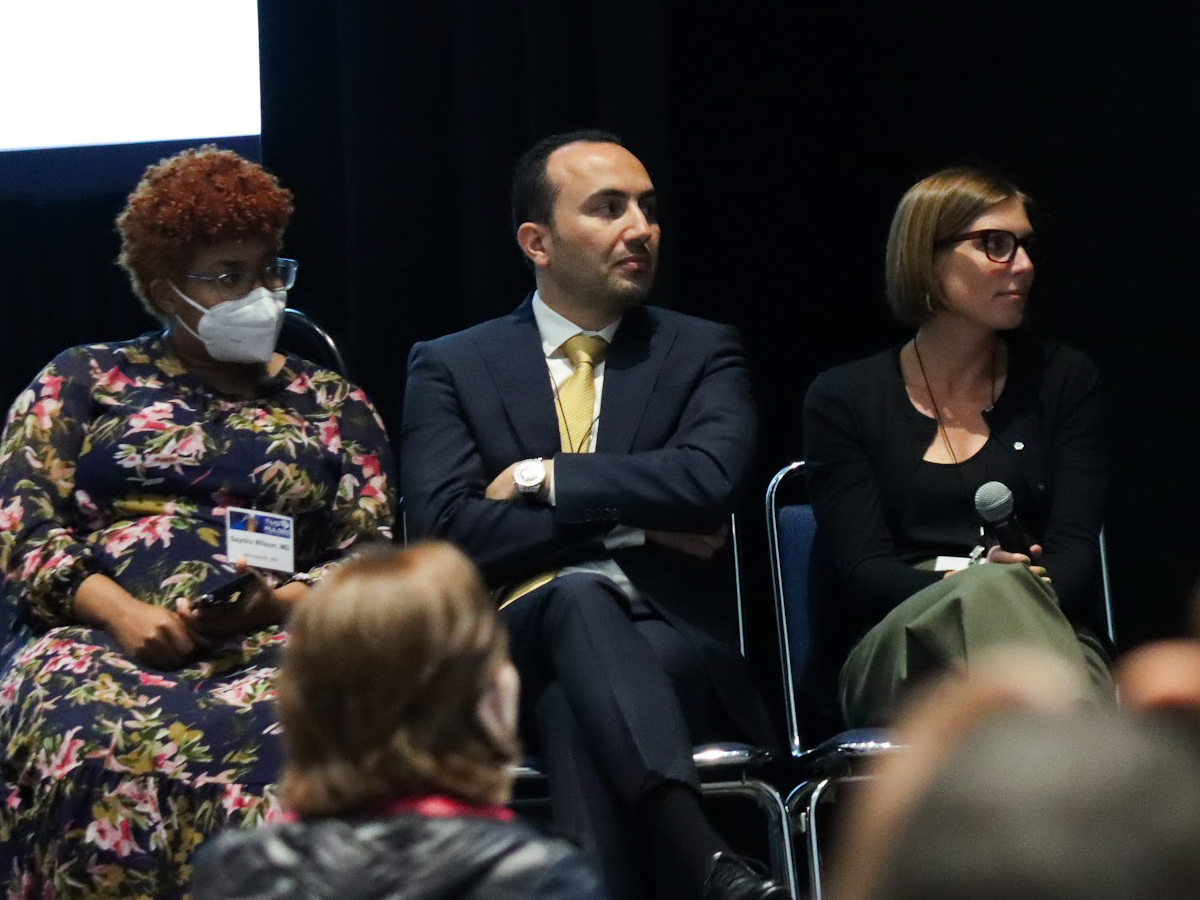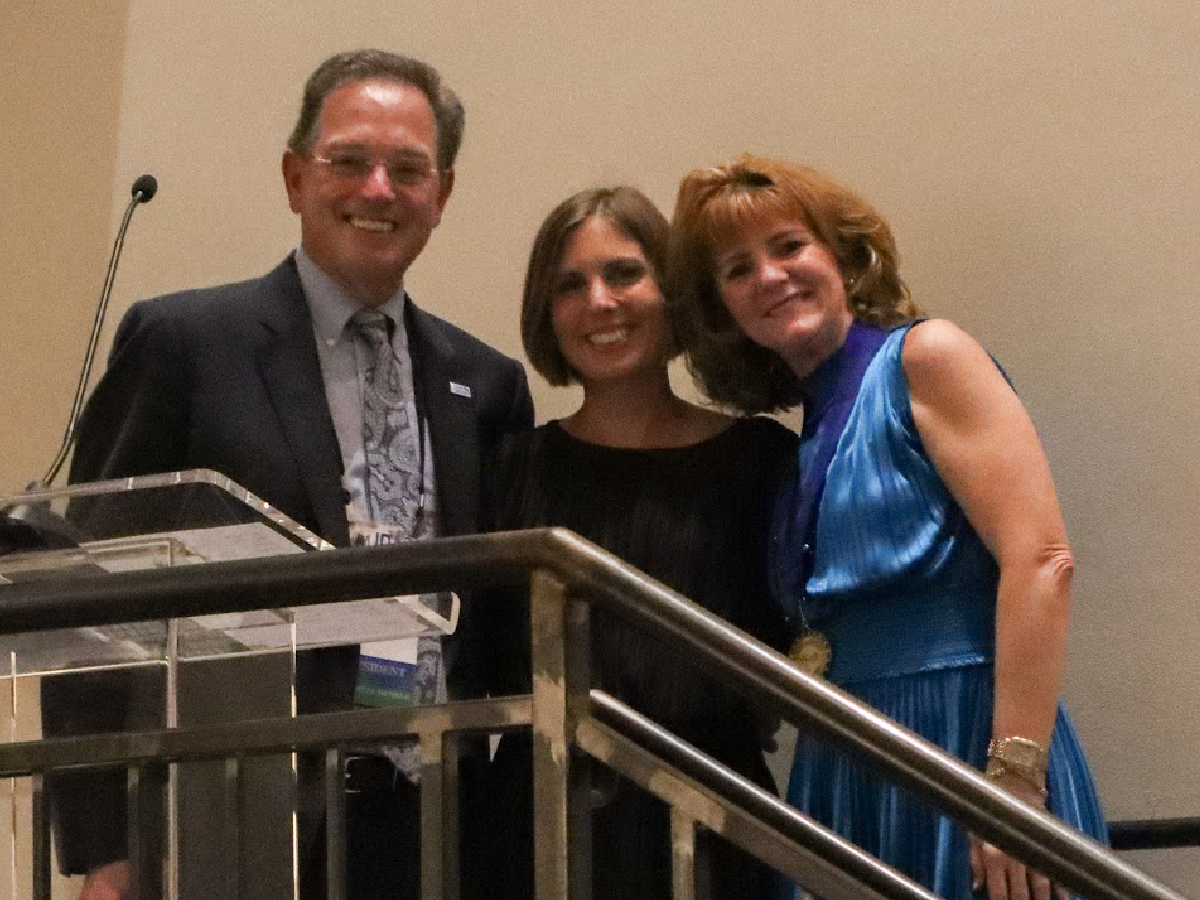Fri, 11/03/2023 - 11:40



Article by Jordan Galerkin - Scientific Writer
Dr. Suzanne Kerns has been a member of the Clinical TMS Society for seven years and is currently serving her third term on the Board of Directors. She is an inaugural CTMSS Fellow and serves on the Education and PULSES committees. Dr. Kerns currently works at the Veterans Affairs clinic in Charleston, South Carolina, but her journey to become a TMS psychiatrist began in Australia where she earned her medical degree at the University of Sydney.
“I’m a surfer, and I wanted to be in school where I could still surf,” Dr. Kerns says with a smile. She went on to complete her residency at Duke University Medical Center in North Carolina, where she learned about TMS. “Duke has a really fantastic brain stimulation program, and they were doing TMS at a time when not a lot of places were. I was there right after TMS had been FDA-cleared in 2008,” she says.
“It was this new and exciting area of psychiatry that I was interested in because I’d seen so many patients who weren’t responding to medications…it was a really exciting opportunity,” Dr. Kerns explains. She later completed a fellowship in neuromodulation with Dr. Mark George at the Medical University of South Carolina or MUSC. “I was lucky enough to be selected for that,” she says. “I did a year-long fellowship in interventional psychiatry where I had tons of exposure to TMS on the clinical and research side, from one of the founding fathers of TMS…it was a wonderful experience.”
After her fellowship, Dr. Kerns worked at the Seattle Neuropsychiatric Treatment Center and helped grow their practice from a single TMS chair to eight chairs over three years. “It was pretty phenomenal because in those days, not every insurance company was covering TMS,” she explains. “It really spoke to the effectiveness of the treatment that so many people were willing to pay out-of-pocket.” After her time in Seattle, she moved back to South Carolina and returned to MUSC to work in the Brain Stimulation Lab, where she did both clinical and research work in TMS.
“I also got to do something I never thought I would do as a psychiatrist, which was to go on a zero-gravity flight as part of a TMS study with Dr. Donna Roberts,” Dr. Kerns says. Dr. Roberts is currently the Deputy Chief Scientist for the International Space Station laboratory and previously worked as a neuroradiologist at MUSC while serving as an investigator on several NASA-funded studies. “I was lucky to be working in a place with so many smart people doing exciting work.” Earlier this year, Dr. Kerns began a new position at the Veterans Affairs (VA) clinic in Charleston. “I am growing the neuromodulation program…which included adding a new TMS chair. We’re now a two-chair clinic, which is big for the VA,” she explains. She is working to help expand TMS access within the VA at community outpatient clinics. “Research-wise, I am currently working with Dr. Lisa McTeague [from MUSC] on accelerated theta-burst TMS for post-partum depression, so I’m very excited about that.”
It was in 2016 that Dr. Kerns joined the Clinical TMS Society, and shortly thereafter ran for the Board of Directors. “I love being part of the Clinical TMS Society. It’s been amazing for my professional growth, my career, and socially,” she says. “I’ve made some lifelong friends on the committees, and it’s a nice, friendly place where people do great work in the field.” Dr. Kerns has served on the PULSES and Education Committees for several years. She was part of the original faculty of PULSES and continues to serve as a regular lecturer. “The PULSES courses are so fun,” she says. “I’ve been able to help spread the society’s mission of increasing education and access to TMS internationally, so that has been amazing.”
Dr. Kerns believes that PULSES is an invaluable course for TMS providers. “I might be a little bit biased,” she says. “But I do think it’s the best course out there, especially for clinicians because it’s so practical. Michelle Cochran does such an amazing job of keeping all the educational material up to date,” Dr. Kerns explains. “You also get to meet leading world experts that folks would otherwise not run into…like Tony Barker and Mark George and Linda Carpenter…and I learn something new every time because the field is developing so rapidly.”
Within the Education Committee, Dr. Kerns is also part of the Resident Education Task Force. She had participated in resident training at MUSC and the University of Washington, so joining the Education Committee was a natural fit. “There are not really any standard guidelines on what residents learn about TMS during their training,” she explains. “Our task force created a short, two-part presentation that residents from training programs that don’t have access to TMS can watch and learn from.” The goal is to increase awareness about TMS treatment and protocols among psychiatric residents. “We’ve posted it on the [CTMSS] website, so training directors can use it to help educate their residents.”
Dr. Kerns encourages new members to get involved in committees and attend PULSES. “I would strongly recommend [attending PULSES], even if you think you have the basics down. I’ve been doing TMS for over a decade now and I still feel like I learn from the courses every time I attend.” She is also an inaugural CTMSS Fellow and has advice for anyone who might want to apply. “Participation is key,” she says. “It’s not necessarily about joining as many committees as possible, I think it’s more about quality over quantity. If there’s something you’re really passionate about within the Society, try to build that up because there’s always room for growth and people are often receptive to new ideas,” Dr. Kerns says. “I honestly don’t think about the participation as work; most of the committees are very fun to be on, and the work they’re doing is exciting.”